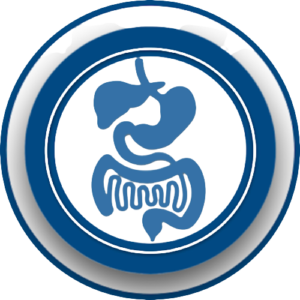Stomach

Stomach Treatment In Dhantoli, Nagpur, MH
Dr. Manish Upwanshi is the Best Stomach Surgeon in Nagpur Maharashtra. Your stomach is a muscular organ that digests food. It is part of your gastrointestinal (GI) tract. When your stomach receives food, it contracts and produces acids and enzymes that break down food. When your stomach has broken down food, it passes it to your small intestine.
What is the stomach?
The stomach is a J-shaped organ that digests food. It produces enzymes (substances that create chemical reactions) and acids (digestive juices). This mix of enzymes and digestive juices breaks down food so it can pass to your small intestine. Your stomach is part of the gastrointestinal (GI) tract. The GI tract is a long tube that starts at your mouth. It runs to your anus, where stool (poop) leaves your body. The GI tract is a key part of your digestive system.
What is the stomach’s function?
Your stomach’s purpose is to digest food and send it to your small intestine. It has three functions:
- Temporarily store food.
- Contract and relax to mix and break down food.
- Produce enzymes and other specialized cells to digest food.
How does the stomach work with the rest of the GI tract?
Each part of your GI tract breaks down food and liquid and carries it through your body. During the digestive process, your body absorbs nutrients and water. Then, you expel the waste products of digestion through your large intestine.
Food moves through your GI tract in a few steps:
- Mouth: As you chew and swallow, your tongue pushes food into your throat. A small piece of tissue called the epiglottis covers your windpipe. The epiglottis prevents choking.
- Esophagus: Food travels down a hollow tube called the esophagus. At the bottom, your esophageal sphincter relaxes to let food pass to your stomach. (A sphincter is a ring-shaped muscle that tightens and loosens.)
- Stomach: Your stomach creates digestive juices and breaks down food. It holds food until it is ready to empty into your small intestine.
- Small intestine: Food mixes with the digestive juices from your intestine, liver and pancreas. Your intestinal walls absorb nutrients and water from food and send waste products to the large intestine.
- Large intestine: Your large intestine turns waste products into stool. It pushes the stool into your rectum.
- Rectum: The rectum is the lower portion of your large intestine. It stores stool until you have a bowel movement.
When should I call my doctor?
Call your Gastro Surgeon right away if you have:
- Chest pain.
- Fever.
- Nausea and vomiting.
- Pus or blood in your stool.
- Severe dehydration or diarrhea.
- Sudden and intense abdominal pain.
